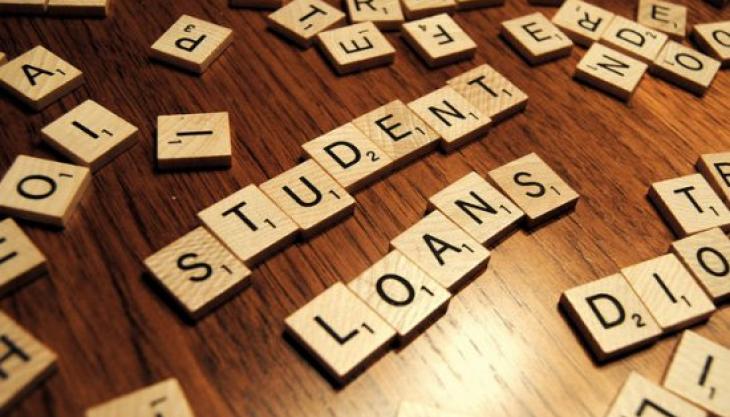Discharge Private Student Loans You Can't Afford in Bankruptcy
Submitted by Rachel R on Tue, 04/28/2015 - 10:00am

Private student loans can be difficult to pay
Image Source: Flickr User GotCredit
If you used costly private student loans to pay for your college education, you might be struggling. And since most people only take on private loans once they've maxed out federal loans if this is you – you may be dealing with a significant student debt burden that's simply unaffordable. There are ways to deal with educational debt that is burdensome, and bankruptcy may be part of the solution.
Federal vs. Private Student Loans
There is a significant difference between federal and private student loans, particularly when it comes to debt relief. First, and most importantly, federal loans do not have a statute of limitations. They will follow you indefinitely (even to the grave) until you pay them off, or they are discharged through some mechanism. Second, federal loans come with an income-based repayment option where you can get more affordable payments that won't exceed 10-15% of your disposable income. Private loans usually have higher interest rates and do not have to offer you affordable repayment options.
Private Student Loan Statute of Limitations
So what is a statute of limitations? It is the legal time span that a debt issuer has to pursue legal remedies to collect a debt - this can include suing you over the matter to get a judgment that allows the creditor to get a lien against your personal property or a garnishment against your wages. Currently, under North Carolina law, private student loans are not eligible for wage garnishment, but a proposed law may change that. The statute of limitations on private student loans is three years from the date that you broke the contract (i.e. the date of your last payment).
Utilizing the Statute of Limitations Wisely
For instance, if you can't afford your private student loan payments and stop making payments in May 2012, that's when the statute of limitations starts tolling. (That's legal word for the ticking clock of the law). So long as you don't make any other payments, the statute of limitations on the private loan would expire on May 2015. However, if, at any point in the interim, the lender talks you into making a partial payment, the clock would reset.
In this example, say the lender set their debt collection dogs on you. They tell you, in May 2014, that if you make a partial payment they can work with you on refinancing (or any other option they offer). Then you pay $20 – the statute of limitations clock resets to May 2014 and, barring you making another payment, your debt would not expire under the law until May 2017. Creditors know this and will push for a partial payment when the debt is close to expiring.
What Happens When the Statute Expires
Once the statute of limitations clock runs out on your private student loan, the creditor can no longer take you to court over what you owe. An expired statute takes the teeth out of their collections efforts. They can still call you and ask you to pay voluntarily, but as long as you resist, the matter is done and over.
What If the Statute Hasn't Expired and You Need Help
In some cases, you may not be able to let the clock run out on a private student loan you can't afford. For instance, if you need to protect your credit rating to get or retain a job or security clearance, you may have to deal now with the private student loans you can't afford. In this case, bankruptcy may help. You may be able to discharge in bankruptcy if your private student loan was:
- For you to attend a school that was not certified as a Title IV institution, or
- Used to cover living expenses during college rather than tuition, or
- Made by a school that has gone out of business, or
- Made to you when you could not possibly pursue a career in that area, or
- For study abroad that didn't offer credit at your US college
To find out more about how bankruptcy may help you with student loans, contact the North Carolina bankruptcy experts at the law offices of John T Orcutt.
Call us at +1-833-627-0115 for a free consultation at one of our convenient NC offices in Raleigh, Fayetteville, Greensboro, Wilson, Durham or Garner.
Debts Hurt! Got debt? Need help? Get started below!
Serving All of North Carolina
- Bankruptcy Attorneys Raleigh NC (North)
- Bankruptcy Attorney Fayetteville NC
- Bankruptcy Attorney Durham NC
- Bankruptcy Attorneys Wilson NC
- Bankruptcy Attorneys Greensboro NC
- Bankruptcy Attorneys Southport NC
- Bankruptcy Attorneys Wilmington NC
Bankruptcy Attorneys Raleigh NC (North)
6616 Six Forks Rd #203 Raleigh, NC 27615 North Carolina
Tel: (919) 847-9750

Bankruptcy Attorney Fayetteville NC
2711 Breezewood Ave Fayetteville, NC 28303 North Carolina
Tel: (910) 323-2972

Bankruptcy Attorney Durham NC
1738 Hillandale Rd Suite D Durham, NC 27705 North Carolina
Tel: (919) 286-1695


Bankruptcy Attorneys Greensboro NC
2100 W Cornwallis Dr. STE O Greensboro, NC 27408 North Carolina
Tel: (336) 542-5993

Bankruptcy Attorneys Southport NC
116 N Howe St. Suite A Southport, NC 28461 North Carolina
Tel: (910) 218-8682

Bankruptcy Attorneys Wilmington NC
116 N. Howe Street, Suite A Southport, NC 28461 North Carolina
Tel: (910) 447-2987
